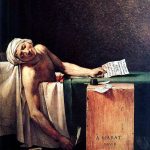In 1889 Antonio de Oliveira Salazar was born into a devout smallholding family of peasant origins. Showing that he had a studious and attentive mind, he was accepted by a seminary where he was thoroughly educated. The good monks found him studious, quiet and self-contained. He rose in education rapidly to become a lecturer at the University of Coimbra, where the elite of Portugal completed their education.
Politics did not seem to interest him as much as it did some others, though he did become a valuable member of a non-religious group which he represented as parliamentary candidate, during the epoch of the First Republic. Distinguished in Economics, he ascended under the dictatorship of General Carmona (1926 – 32). It was during the Thirties that he founded the Estado Novo which he dominated for thirty years or more. The policy was simple: abolition of other political parties and trade unions; complete censorship, the maintenance of power in an all-powerful administration, and an insistence on the values of ‘God, Country and the family’. Needless to say, the centralized and authoritarian Estado Novo permitted the old elite to retain political and social control.
As Dictator, Salazar was ably supported by the feared army and especially the security police, known as the PIDE. His economic policies were the opposite of progressive however, surprisingly for a supposedly brilliant economist. Portugal rapidly became the poorest country in Europe with a Per Capita Income less than Turkey’s. But, as so often seems to happen, the landowning oligarchy became richer and richer. It is so often the same story. Salazar and his government, unabashed by poverty, refused to give up any of its African colonies.
The peculiar fact is that when Salazar was driven from power in 1968, the army that had been faithful to him refused to operate against the independence movements in the colonies. This led to the downfall of the regime. It is said that when he died in 1970 he still believed that he was dictator.









Leave A Comment